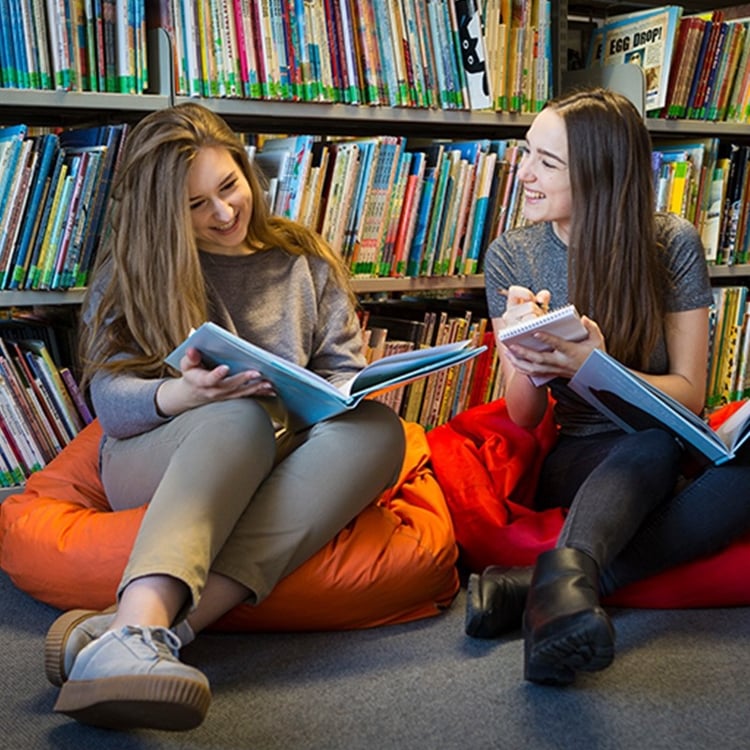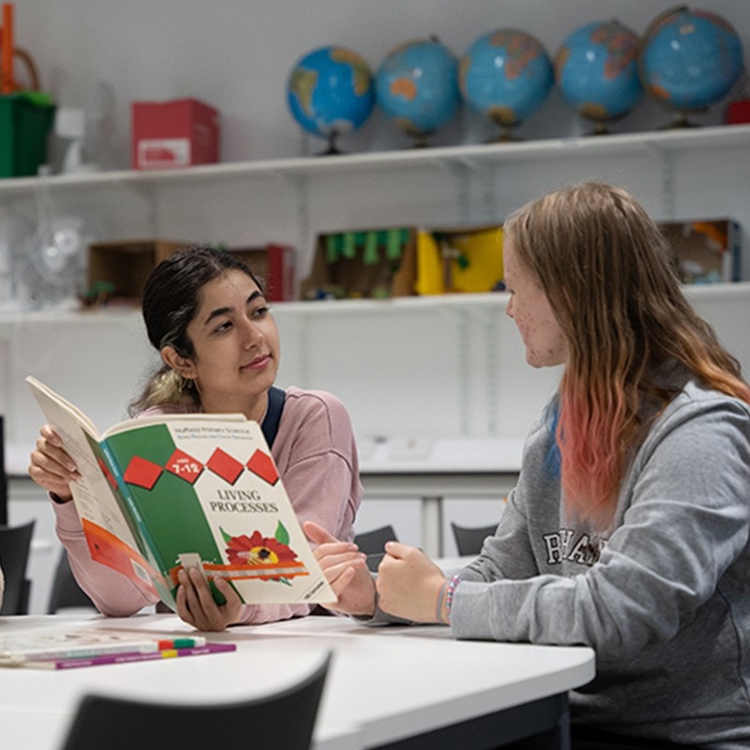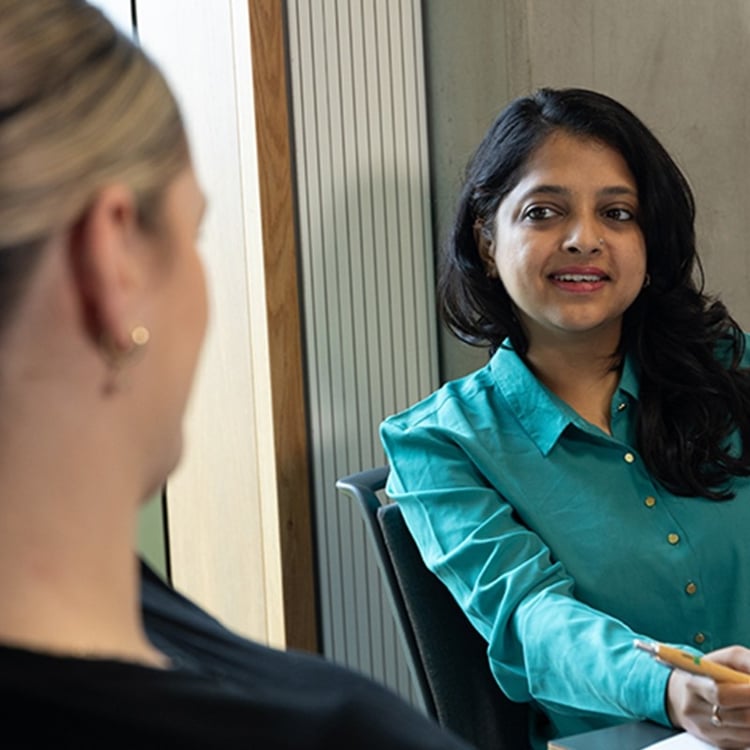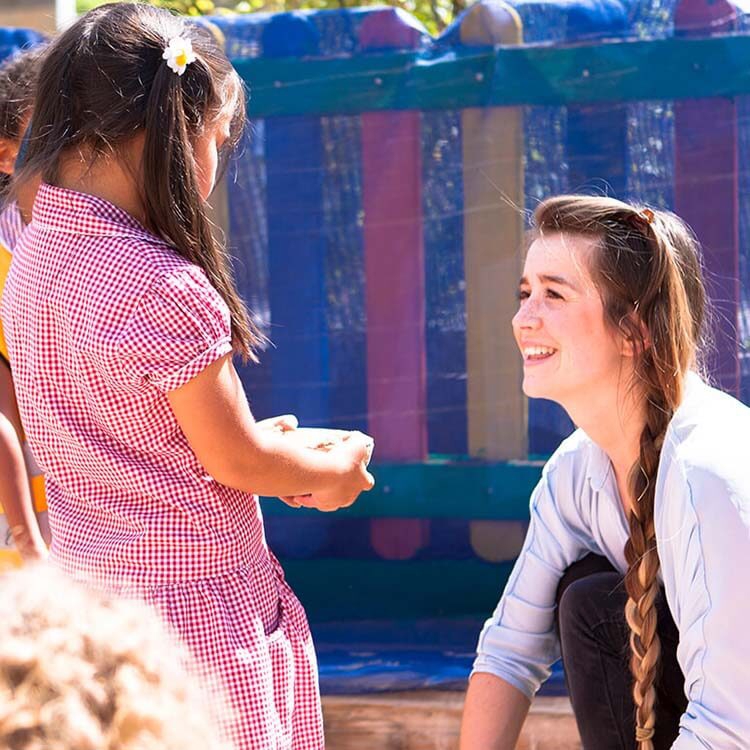Entry tariff:
112–128 UCAS points (or equivalent)
Foundation Year: 64–80 UCAS points (or equivalent)
International Foundation Pathway:
64 UCAS (or equivalent)
IELTS: 5.5
UCAS Codes:
X310
X110 (if choosing Foundation Year)
CertHE: X210
Start date(s):
September 2026
Discover how to shape positive beginnings for young children through a programme that brings together rich Froebelian heritage, pioneering ideas and contemporary research.
This programme explores childhood from birth to eight through a blend of theory and hands on experience, encouraging you to understand children within their families, communities and wider social worlds.
You will study childhood as a socially constructed and culturally situated stage of life, while early modules introduce it as both an academic field and a way of interpreting broader social issues.
Your learning draws on a wide range of disciplines including history, education, psychology, sociology, health, policy and leadership.
A Froebelian approach underpins your studies, highlighting the importance of holistic development, play, natural environments and nurturing relationships. You will engage with global and local perspectives that foreground equity, diversity and social justice, supported by inclusive teaching and assessment that values the varied experiences students bring with them.
Throughout the course, Graduate Practitioner Competencies guide your development and are assessed through yearly placements in nurseries, schools, health and social care settings and community organisations. These real world experiences help you grow in confidence and professional capability while deepening your understanding of child development, safeguarding, curriculum design and inclusive practice.
Did you know?
This degree prepares you for a wide range of careers in early years education, family support, health, social care and community work, while also giving you a strong foundation for further study such as a PGCE, social work, therapy or research. You will graduate with valuable transferable skills in communication, leadership, critical thinking and resilience.
Top 6 in London in Childhood & Youth Studies
(Complete University Guide 2025)

Silver in the 2023 Teaching Excellence Framework (TEF)
For delivering high quality teaching, learning and outcomes for our students.
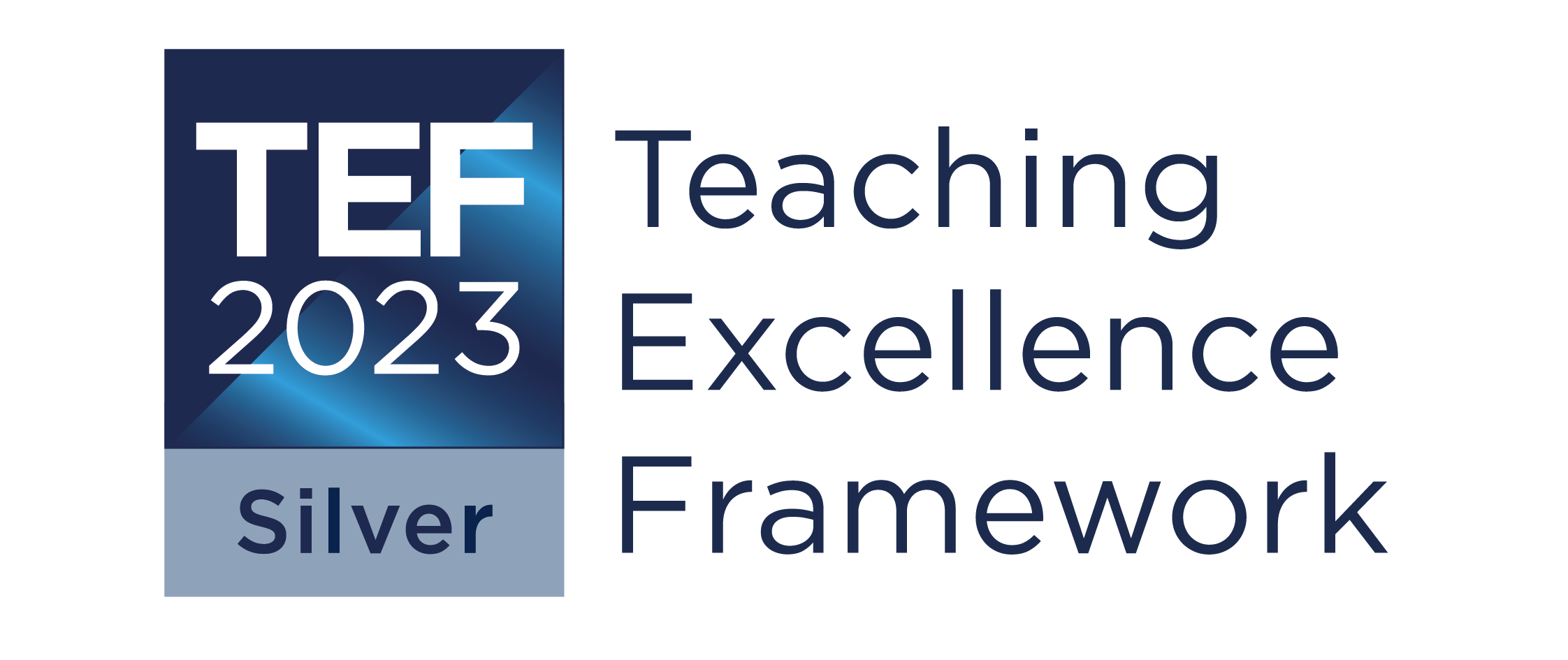
#1 modern university in the UK for Research
Research Excellence Framework
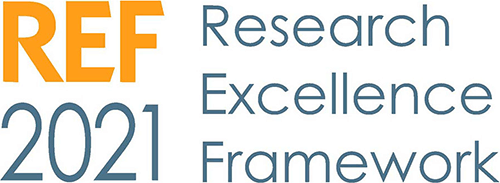
Foundation Year
This course can also be studied with a foundation year (September entry only).
Modules
In this module you will explore contemporary issues in education and early years, developing a broad and informed understanding of topics such as children’s wellbeing, identity, belonging, spirituality, professionalism, curriculum, and assessment. You will consider diverse perspectives, reflect on ethical and global dimensions, and challenge assumptions linked to childhood and sustainability. You will also build essential academic skills, including confident communication, analytical thinking, responsible use of AI, and accurate referencing. By reflecting on your learning and engaging with university support, you will strengthen your academic development and prepare for future career opportunities. You will consolidate your learning through interactive tasks, a presentation, and a position paper.
In this module you will explore Froebel’s vision for early childhood, gaining a clear understanding of his holistic approach and the central role of play in children’s learning and development. You will examine how Froebelian principles influence contemporary practice and policy, and consider their relevance in addressing global issues that affect young children, including climate change and socio economic inequalities. Through this study you will reflect on how these principles can guide meaningful, child centred practice and contribute to positive change for children, families and communities.
In this module you will take your first steps into professional practice, applying your developing knowledge of early childhood in real settings. You will explore your values and identity, build respectful relationships, and deepen your understanding of children’s development, health, wellbeing and learning. During 175 hours in nurseries, early years settings or schools, you will work as part of a team, use reflective skills to enhance your practice, and gather evidence toward the Graduate Practitioner Competencies. With guidance from tutors and mentors, you will grow in confidence and gain insight into your future career in the early years sector.
In this module you will explore children’s development from conception to eight years, gaining a holistic understanding of how they grow, learn and thrive. You will study key theories, practise observing young children, and reflect on ethics and professional responsibilities. Through filmed examples you will strengthen your confidence in interpreting development and building positive relationships in practice. You will also consider equity, diversity and inclusion, along with the wider social and cultural influences that shape children’s lives, helping you prepare for your future placement.
These are the current planned modules on this course and may be subject to change.
In this module you will explore the many ways children communicate and make meaning from birth, including verbal and non verbal expression, reading and early writing. You will examine how children engage with books, develop reading and writing skills, learn multiple languages and how best to support those with SEND. You will reflect on key theories of language development and practise observing and documenting children’s communication. You will also consider equity, diversity and inclusion, exploring how social, cultural and policy contexts shape early communication and literacy, and reflect on global perspectives and your own experiences.
In this module you will deepen your understanding of the nature, purpose and use of educational research in local, national and global contexts. You will engage critically with different methodologies and paradigms, exploring how evidence is gathered, interpreted and applied across varied social, economic and cultural settings. You will examine how research informs professional practice, shapes policy and supports educational innovation. Through ethical and methodological reflection, you will strengthen your skills in enquiry and learn to connect theory with practice, helping you contribute to inclusive and evidence based educational environments.
In this module you will learn how to create and sustain safe, inclusive learning environments across a range of early years settings. You will examine how teaching approaches, culture and relationships influence children’s and young people’s experiences, and explore the four areas of need within SEND frameworks with a focus on neurodiversity and autism. You will analyse different understandings of disability, develop inclusive practice, and strengthen your collaboration with professionals, families and communities. By linking theory to practice, you will build skills in observation, reflection and analysis to support environments where everyone feels valued and included.
In this module you will build on your first placement experience by extending your professional skills across 210 hours in nurseries, early years settings, schools, or other areas of early childhood. You will deepen your understanding of children’s development, health, wellbeing, participation and learning, while strengthening your reflexive practice through academic reading and reflective tasks. You will work to develop ethical, respectful relationships with children, families and practitioners, recognising the importance of social and cultural context. Support from mentors and tutors will guide your progress as you evidence the Early Childhood Graduate Practitioner Competencies and prepare for your oral assessment.
These are the current planned modules on this course and may be subject to change.
This course offers all students the option of a one-year paid work placement, to boost your employability even further. If you choose this route, you will take the placement following year two of your course, and then return to complete your degree.
Why take a placement?
A placement year is the perfect opportunity to gain valuable work experience, to build on the career skills we will teach you on this degree. The connections you make on the placement will improve your career prospects further, and equip you with the skills you need to secure graduate-level employment.
How we support you
The University's Placement and Work Experience Team are experts at helping you to secure a placement. They will work closely with you from the start, helping you research potential employers, discover placement opportunities, create and pitch your CV, and will coach you to perform well in interviews. We aren't able to guarantee a placement, but our sector-leading advisors will give you the best possible chance of securing one.
Find out more about how we'll support you
We understand that your plans might change once you start your programme. If you decide not to do a placement, you will have the option of completing the three year version of your programme.
Whatever your choice, you will have access to many opportunities for work experience through our Placement and Work Experience Team, and access to face-to-face and 24/7 online careers support.
In this module you will explore what it means to be an imaginative and ethical leader in the early years. You will reflect on your own values, engage with real scenarios and develop the confidence to advocate for children’s rights and inclusive practice. Through storytelling, case studies, role play and creative reflection, you will build the skills to lead with compassion and creativity. You will finish the module with practical strategies to inspire others, support families, shape meaningful learning environments and champion the voices of young children.
In this module you will consolidate your learning and placement experiences from across the BA ECS course, developing as a confident, analytical and reflective early years professional. You will complete 175 hours in nurseries, schools, family hubs or other settings, ensuring experience with children from birth to eight. You will strengthen your democratic and reflexive practice, build professional relationships, and evaluate your progress in achieving the Early Childhood Graduate Practitioner Competencies. Guided by tutors and mentors, you will reflect on your pedagogical thinking, document your learning in a reflective log, and prepare for your oral assessment, demonstrating your readiness for professional practice.
In this module you will undertake your Capstone Project, bringing together the knowledge, skills and experiences gained throughout your degree. You will design and complete an independent project in education or early childhood studies that reflects your interests, whether through action research, investigation, dissertation or another in-depth study with real-world relevance. Supported by a supervisor, you will apply theory to practice, integrate prior learning and placement experiences, and develop professional expertise. This module will challenge you to produce work that demonstrates academic rigour, practical impact, and prepares you for future career opportunities or further research.
In this module you will explore how children, childhood and young people are represented across media, including films, TV, social media and news. You will examine theory and literature to critically analyse these portrayals and consider their impact on practice. You will investigate children’s engagement with online spaces, including social media, YouTube and gaming, and explore safeguarding strategies to support wellbeing and mental health. Through this module you will develop the skills to deconstruct media influences, understand their real-life implications, and confidently apply this knowledge to inform and guide practice in your professional settings.
In this module you will develop a play-based pedagogy and advocate for meaningful play opportunities for all children. You will explore attitudes and perceptions of play, with a particular focus on outdoor play and its role in children’s learning and holistic development. You will examine how culture, socioeconomics, politics and climate change influence play provision, and critically evaluate the benefits and limitations of technology on play. Through this, you will learn to design inclusive and engaging play environments that support children’s growth, curiosity and creativity across diverse contexts.
These are the current planned modules on this course and may be subject to change.
This course offers a foundation year, which takes place at the beginning of your studies. Studying a foundation year will give you academic and practical experience, and a strong introduction to your subject, ensuring you succeed on your undergraduate degree.
30 credits
You will develop your core academic and integrated English language skills of speaking, listening, reading and writing. You will become familiar with key academic skills and concepts, such as referencing methods and awareness of academic integrity and tone. You will apply these skills and knowledge to both broad topics and also your chosen subject pathway.
Teaching and learning
You will be required to actively engage in on-campus learning for up to 10 hours a week.
You will be taught through a full range of teaching and learning methods, which include lectures, seminars, workshops, discussion groups, group directed tasks and presentations. This will enable you to learn from your peers and tutors in both structured and information settings.
You will be encouraged to think creatively about your approach to learning and discussions with your peers. You will also have access to recordings, resources, links and signposting through Moodle to enrich your learning.
Assessment
You will be assessed through group and individual presentations, comparative and reflective essays, multiple choice exams, coursework and reports, oral exams, portfolios, case studies and blogs.
30 credits
You will develop your core academic and integrated English language skills of speaking, listening, reading and writing. You will become familiar with key academic skills and concepts, such as referencing methods and awareness of academic integrity and tone. You will apply these skills and knowledge to both broad topics and also your chosen subject pathway.
Teaching and Learning
You will be required to actively engage in on-campus learning for up to 10 hours a week.
You will be taught through a full range of teaching and learning methods, which include lectures, seminars, workshops, discussion groups, group directed tasks and presentations. This will enable you to learn from your peers and tutors in both structured and information settings.
You will be encouraged to think creatively about your approach to learning and discussions with your peers. You will also have access to recordings, resources, links and signposting through Moodle to enrich your learning.
Assessment
You will be assessed through group and individual presentations, comparative and reflective essays, multiple choice exams, coursework and reports, oral exams, portfolios, case studies and blogs.
30 credits
You will develop your research, numeracy and information technology skills. You will investigate the difference between primary and secondary research, conduct your own research project and demonstrate your findings through data analysis. You will also develop your awareness of equality, diversion and inclusion in the UK, through a real-world issue; discrimination in the workplace.
Teaching and learning
You will be required to actively engage in on-campus learning for up to 10 hours a week.
You will be taught through a full range of teaching and learning methods, which include lectures, seminars, workshops, discussion groups, group directed tasks and presentations. This will enable you to learn from your peers and tutors in both structured and information settings.
You will be encouraged to think creatively about your approach to learning and discussions with your peers. You will also have access to recordings, resources, links and signposting through Moodle to enrich your learning.
Assessment
You will be assessed through group and individual presentations, comparative and reflective essays, multiple choice exams, coursework and reports, oral exams, portfolios, case studies and blogs.
30 credits
This module provides an in-depth exploration of the principles, theories and practices underpinning learning and child development. You will gain a comprehensive understanding of the key factors influencing children’s physical, cognitive, social and emotional growth, as well as your implications for effective educational practice. Drawing on foundational theories by Piaget, Vygotsky, Froebel, Skinner and others, this module bridges the gap between theoretical perspectives and practical application in diverse educational contexts.
Through weekly themes, you will examine milestones in child development, the role of play, language acquisition, individual differences, and the impact of external environments, including technology, on learning. Special emphasis is placed on reflective practice, observation, and assessment techniques, as well as strategies to support diverse learners, including those with special educational needs (SEN) and English as an Additional Language (EAL).
This module aims to also develop your critical thinking, analytical skills, and practical expertise, preparing you to create inclusive, supportive, and effective learning environments that foster holistic child development.
Teaching and learning
The teaching delivery for each module consists of one, one-three-hour lecture and one, two-hour seminar per week.
You will have a diverse learning experience of lectures/seminars, case studies, practical sessions and field visits, active learning workshops and microteaches and guest speakers.
You will also have an additional 30 minutes of online support each week to enhance your understanding and learning. This will consist of formal reflection as part of the reflective journal assignment, as well as tutorial support for the informative poster.
Assessment
This module will be assessed using a reflective journal and an information poster.
50% - reflective journal, which documents your learning and insights from each session.
50% - informative poster, you will create an informative poster based on a chosen case study that investigates an aspect of child development.
30 credits
This module explores the relationship between education policies and ethical practices, emphasising your impact on teaching, learning, and professional responsibilities. Through a comprehensive study of key UK and International policies, such as safeguarding, equality, and SEND frameworks, you will critically evaluate how these policies are developed, implemented, and upheld in diverse educational settings.
This module integrates a focus on professional ethics, exploring how educators navigate complex decision-making processes while adhering to policy requirements and maintaining moral and ethical integrity.
The module prepares you to address the challenges of policy compliance and professional accountability while fostering collaboration with diverse stakeholders.
This module also aims to develop your critical thinking, analytical skills, and practical expertise, preparing you to create inclusive, supportive, and effective learning environments that foster holistic child development.
Teaching and learning
By engaging with real-world case studies, global perspectives, and interactive workshops, you will gain the skills to critically analyse policy frameworks, apply ethical reasoning, and ensure inclusive and effective educational practices.
The teaching delivery for each module consists of one, one-three-hour lecture and one, two-hour seminar per week.
You will have a diverse learning experience of lectures/seminars, case studies, practical sessions and field visits, active learning workshops and microteaches and guest speakers.
You will also have an additional 30 minutes of online support each week to enhance your understanding and learning. This will consist of activities to develop your communication skills as well as providing you with opportunities to explore wider policy implementation in diverse/comparative education settings.
Assessment
This module will be assessed using a policy review and a school-based intervention pitch.
40% - policy review, where you will critically evaluate a key education policy.
50% - school-based intervention pitch, you will be design and pitch an intervention aimed at addressing a specific issue related to educational policy and professional ethics.
These are the current planned modules on this course and may be subject to change.
Careers
This programme is designed to develop confident graduate leaders for the early childhood sector, building your professionalism, expert knowledge and ability to work effectively within practice-based teams. You will learn how to collaborate across agencies and contribute to high quality provision for children and families.
Our strong partnerships with early childhood settings, children’s centres, community organisations and national and international bodies create valuable opportunities for you throughout your degree. We work closely with local schools and early childhood providers who offer placements and often continue to collaborate with students after graduation. A wider network of employers and professionals also contribute to teaching through guest lectures, helping you understand the sector from multiple viewpoints and supporting your career development.
By your final year, you will spend more time working in early childhood environments and exploring policy and research in both national and global contexts. This experience broadens your career possibilities and supports progression into roles such as
- early years education and care
- family and community support
- health and social care
- leadership and multi agency work
The degree also provides a strong foundation for further study and research in early childhood and related fields.

Learning and Assessment
How you’ll learn:
You will learn through a participatory, research-informed approach that combines Froebelian principles with inclusive teaching practices. The programme gradually builds your knowledge and professional skills, starting with foundational concepts in child development, safeguarding and academic literacy, and progressing to more complex ideas such as holistic development, inclusive practice and research methods.
Your learning is enhanced through placements and practice-based experiences, helping you connect theory with real-world settings and develop confidence in professional environments. Teaching methods include:
- lectures, seminars and tutorials
- practice-based simulations
- placements in nurseries, schools and community settings
- digital resources and recorded content to support flexible learning
Attendance at in-person sessions is important for collaborative and skills-focused activities. Throughout the programme, you will be supported in developing reflective practice, critical thinking and leadership, preparing you for a successful career in early childhood education.
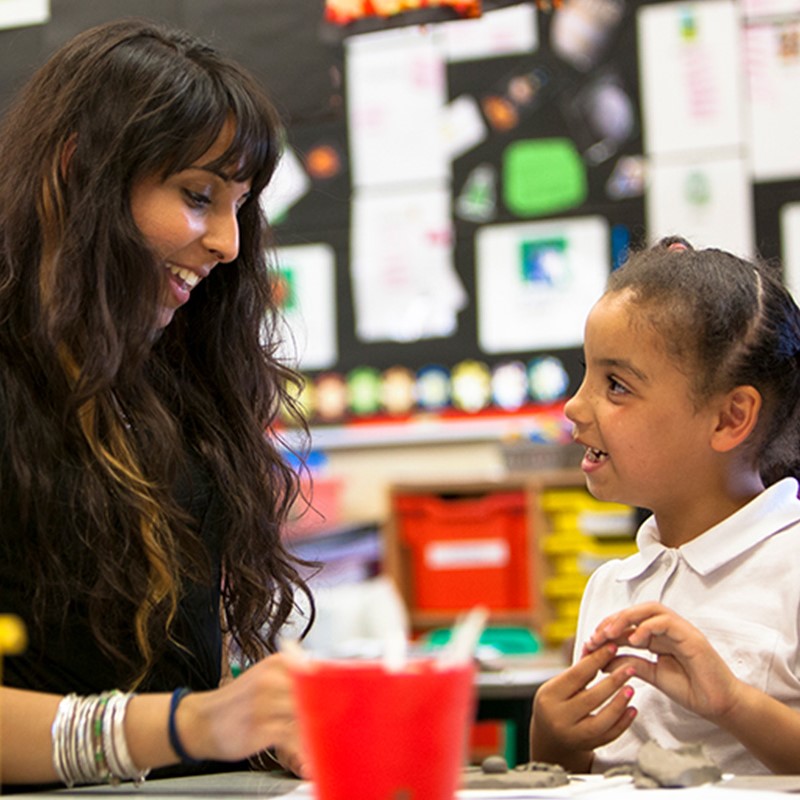
How you’ll be assessed:
Assessment on this programme is designed to be practical and professionally relevant, reflecting the real tasks and expectations of early childhood educators. Each module includes no more than two summative assessments, ensuring clarity and a manageable workload.
Formative feedback is provided throughout, giving you guidance on how to improve and prepare for summative tasks. This ongoing support helps you build confidence while developing both academic and professional skills.
You will complete a variety of assessment types that support:
- theoretical understanding and practical application
- development of key academic skills such as reading, writing and communication
- deepening knowledge of child development and early years theory
- reflective practice and professional identity
The programme also helps you develop essential skills in collaboration, critical thinking and ethical research, equipping you for success in early childhood education and related career paths.
Course staff
Open days
Get a real taste of our campus, community and what it’s like to study at Roehampton
Applying
Full-time UK undergraduate students apply through UCAS.
Entry tariff
112–128 UCAS points (or equivalent)
Foundation Year: 64–80 UCAS points (or equivalent)
Looking to work out your UCAS points or find out about our entry requirements? Find out more.
When we consider applications to study with us, we form a complete view of your achievements to date, and future potential, and can offer flexibility in entry requirements. Find out more about our Contextual Offer scheme.
Specific entry requirements
Career prospects are greatly enhanced by having GCSE Maths and English at grade C/4 or above on this course.
General entry requirements
International undergraduate students apply through our direct application system.
Entry tariff
112–128 UCAS points (or equivalent)
International Foundation Pathway:
64 UCAS (or equivalent)
IELTS: 5.5
Looking to work out your UCAS points or find out about our entry requirements? Find out more.
When we consider applications to study with us, we form a complete view of your achievements to date, and future potential, and can offer flexibility in entry requirements. Find out more about our Contextual Offer scheme.
Career prospects are greatly enhanced by having GCSE Maths and English at grade C/4 or above on this course.
General entry requirements
Fees and funding
UK students
Tuition fees
| Entry date | Undergraduate Year 1 | Undergraduate Foundation Year | CertHE |
|---|---|---|---|
| September 2026 | £9,790 | £5,914 | £9,790 |
Prices shown are for the first year of your degree.
Funding your studies
We also provide other ways to support the cost of living, including on-campus car parking, hardship support and some of the most affordable student accommodation and catering in London.
International students
Tuition fees
| Entry date | Undergraduate Year 1 | Undergraduate Foundation Year | CertHE | International Foundation Pathway |
|---|---|---|---|---|
| January 2026 | – | – | – | £16,950 |
| September 2026 | £17,628 | £17,628 | £17,628 | £17,628 |
| January 2027 | – | – | – | £17,628 |
Prices shown are for the first year of your degree.
Funding your studies
We also provide other ways to support the cost of living, including on-campus car parking, hardship support and some of the most affordable student accommodation and catering in London.


